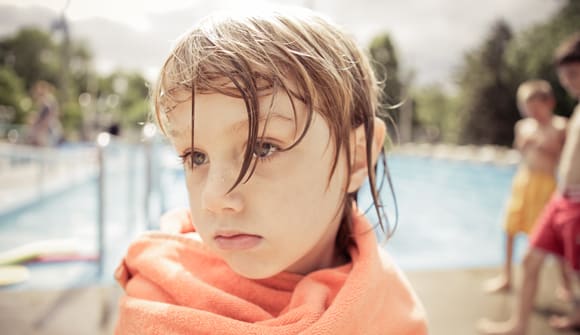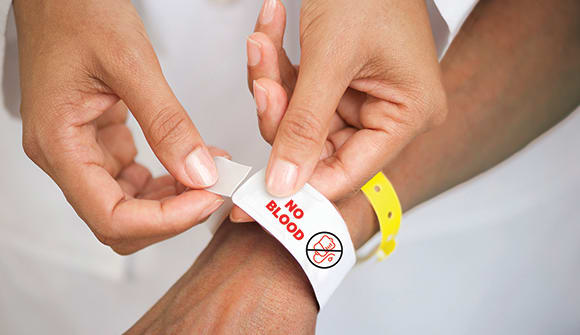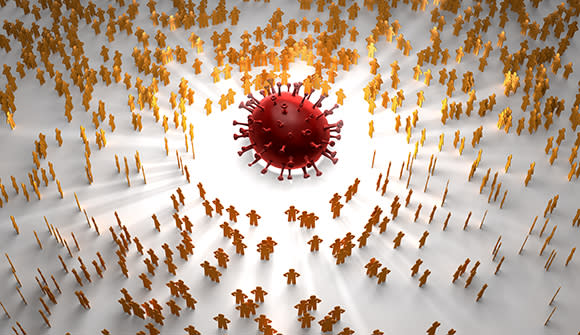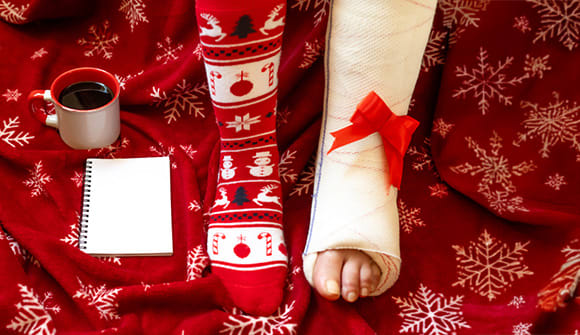Avoiding germs in swimming pools
"Crypto" parasites found in pools could make you and your child sick.
Article Date:

When temperatures are scorching, there’s no better way to cool down than taking a dip in a sparkling pool.
But be cautious if you plan to hit the water, because what might be lurking unseen could make you or your child sick. A fecal parasite commonly found in community pools has been on the rise in recent years, according to the Centers for Disease Control and Prevention (CDC).
What is crypto and why is it dangerous?
Cryptosporidium, also known as crypto, is the main cause of outbreaks of diarrhea linked to water. One diarrheal incident in the water can release millions of diarrhea-causing germs like crypto, E. coli, norovirus and others.
In 2022, there were 12,609 cases reported by 50 states, according to the CDC. This represents a 40.7% increase from the previous year. Swallowing contaminated water in pools or water playgrounds was cited as one of the main ways people became infected.
Chlorine isn’t as effective at killing crypto, allowing the germ to spread easily. That’s why people need to be diligent, especially when using community pools, said Mark Bedard, DO, a pediatrician with Baptist Primary Care/Orange Park Pediatrics. Crypto is reported to be able to survive in properly chlorinated water for more than seven days.
“It’s harder to treat and eliminate from a pool and can spread rapidly through a community,” Dr. Bedard said. “If you don’t have a good immune system, you can get really sick.”
Tips to prevent pool-related illness
To help keep yourself and your little ones safe, follow these tips:
- Avoid swallowing or getting water in your mouth.
- Rinse off before going into the pool.
- Shower with soap and water post swim, either on site or when you get home.
- Keep out of the water if you have diarrhea or vomiting symptoms.
- Notify pool authorities if you, your child or someone else has diarrhea or a bowel movement while in the pool.
- Put infants in swim diapers to minimize leakage.
- Take children on frequent bathroom breaks and check their diapers often.
- Change diapers in a bathroom, not around the pool area.
“It takes a community effort to try to eliminate these types of issues, so it’s important to notify the proper people who can clean the pool and take the appropriate precautions,” Dr. Bedard said. “You have to look out for everyone, not just yourself.”
Symptoms of crypto infection
If you do get sick, symptoms may include:
- Abdominal pain and cramping
- Fever
- Profuse diarrhea
While a regular stomach bug may last a couple of days, crypto symptoms are more severe. Depending on the symptoms and how long they last, medication may be prescribed by a physician.
People should also be cautious of hot tubs, which are harder to keep clean because chlorine doesn’t last as long, according to Dr. Bedard.
“People are sitting in a small, heated space that can get pretty dirty,” he said.
Children under 12 should avoid hot tubs altogether.
Other summer safety tips
Other precautions to take during hot weather include:
- Staying hydrated by drinking eight cups of water a day. If you’re sweating, try a sports drink that replaces lost electrolytes.
- Applying 30 SPF or higher sunscreen every two hours. While swimming, sunscreen should be applied more frequently, every 30 minutes or at least hourly, based on skin tone.
- Using earplugs and over-the-counter swimmer’s ear drops when getting out of the pool, which helps pull water out of the ear to prevent infection.
- Avoiding lakes and ponds if you have an open cut.
“We want children to be outside, swimming and having fun. It’s great exercise,” Dr. Bedard said. “You just need to make sure they’re taking precautions such as staying hydrated and applying sunscreen.”
Looking for more tips on how to keep your child safe throughout the year?
Visit Safe Kids Northeast Florida, an advocacy organization led by THE PLAYERS Center for Child Health at Wolfson Children’s Hospital. If you need help finding a pediatrician, one of our care coordinators can find one that is right for you. Please call 904.202.4YOU (4968) or fill out an appointment request form.



